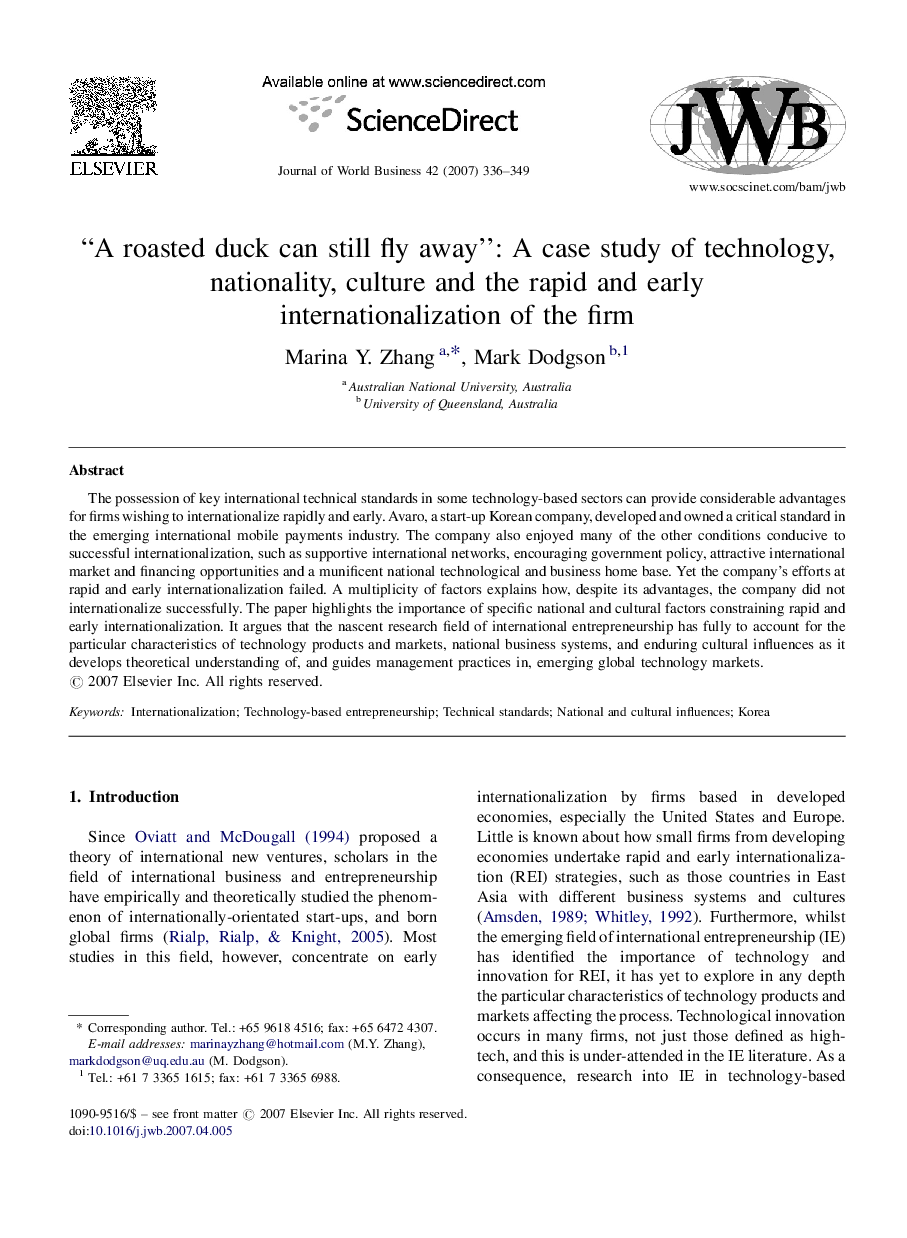| Article ID | Journal | Published Year | Pages | File Type |
|---|---|---|---|---|
| 1003426 | Journal of World Business | 2007 | 14 Pages |
The possession of key international technical standards in some technology-based sectors can provide considerable advantages for firms wishing to internationalize rapidly and early. Avaro, a start-up Korean company, developed and owned a critical standard in the emerging international mobile payments industry. The company also enjoyed many of the other conditions conducive to successful internationalization, such as supportive international networks, encouraging government policy, attractive international market and financing opportunities and a munificent national technological and business home base. Yet the company's efforts at rapid and early internationalization failed. A multiplicity of factors explains how, despite its advantages, the company did not internationalize successfully. The paper highlights the importance of specific national and cultural factors constraining rapid and early internationalization. It argues that the nascent research field of international entrepreneurship has fully to account for the particular characteristics of technology products and markets, national business systems, and enduring cultural influences as it develops theoretical understanding of, and guides management practices in, emerging global technology markets.
